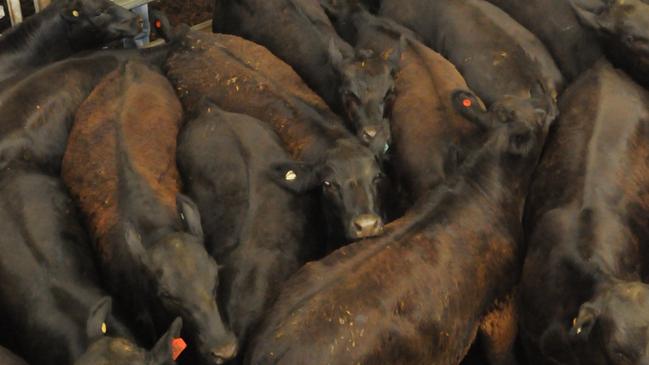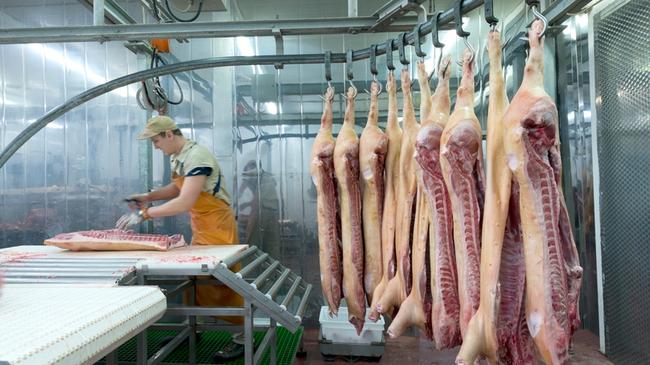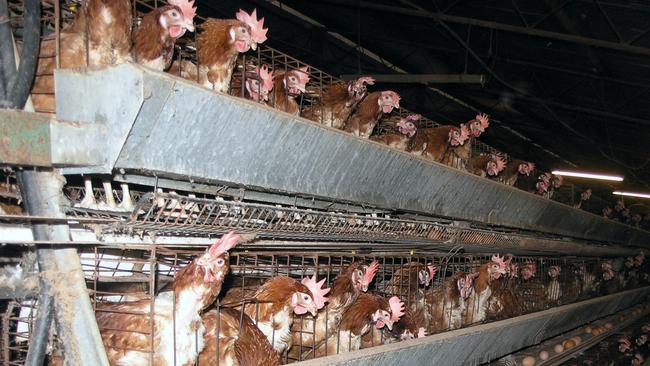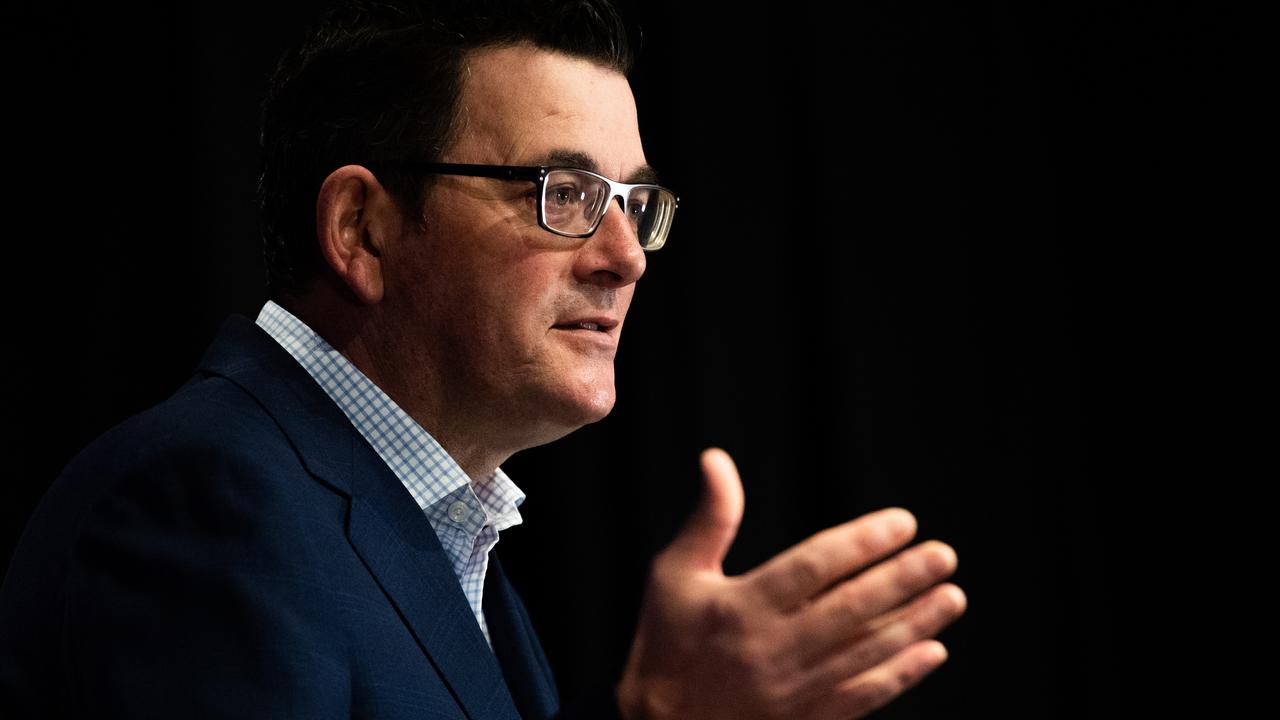Rita Panahi: Cruelty to animals has no place in our food chain
Vegans can be a terribly tiresome lot, and you probably don’t want to be seated beside one at a dinner party but, on the whole, they are among the more principled activists in this age of virtue-signalling clicktivism, writes Rita Panahi.
Rita Panahi
Don't miss out on the headlines from Rita Panahi. Followed categories will be added to My News.
Vegans can be a terribly tiresome lot and you probably don’t want to be seated next to one at a dinner party but, on the whole, they are among the more principled activists in this
age of virtue-signalling clicktivism.
They don’t just preach and hector, they actually do, and their objectives are usually good.
Most Australians care deeply about animal welfare whether it’s pets, wildlife or livestock but many of us would rather not think too much about where our meat comes from and how it is slaughtered.
WHY IS A VEGAN SAUSAGE ROLL SO CONTROVERSIAL?
PAMELA ANDERSON URGES PM TO BAN LIVE EXPORTS
MORE MELBOURNE CAFES DITCH THE DAIRY TO GO VEGAN
We want to believe that livestock is well cared for and killed in the most humane way possible but the truth is many would rather turn a blind eye to the reality of factory farming and slaughterhouse practices.
Generations to come will look back at our treatment of livestock and wonder how people who were so concerned with animal rights could tolerate such widespread cruelty.
One country that has taken steps to reduce animal suffering is Belgium which has banned religious slaughtering practices.

From the start of January it is no longer legal to kill animals without stunning them first in the Flanders region with the ban coming into effect in the southern region in September.
Only the Brussels region will be unaffected by the bans which effectively mean Jewish kosher and Muslim halal slaughter is illegal. Those wishing to purchase halal or kosher meat in other parts of Belgium will likely pay more as the products will have to be imported.
It’s a move that has outraged many in the Jewish and Muslim communities but is said to enjoy widespread support among Belgians.
After all, animal cruelty is animal cruelty whether it’s in the name of religion or not.
Archaic religious beliefs should not be used to justify inhumane practices and the Belgian laws mirror what has been implemented in some other European countries including Iceland, Norway and Slovenia.
That hasn’t stopped legal challenges to the laws which have thus far failed but more legal action is expected in Belgium’s Constitutional Court.
“It is a sad day for religious freedom in Europe,” said president of the Conference of European Rabbis, Pinchas Goldschmidt who called the laws “an attack on the freedom of religion.”

Saatci Bayram, a leader of the Muslim community, also believes the new laws are unjust.
“The government asked for our advice on the ban, we responded negatively, but the advice wasn’t taken,” he said. “This ban is presented as a revelation by animal rights activists, but the debate on animal welfare in Islam has been going on for 1500 years. Our way of ritual slaughtering is painless.”
Little wonder that Mr Bayram’s advice was ignored. To pretend that cutting the throat of an animal is “painless” is plainly absurd.
Halal and kosher rituals require an animal that is in “perfect health” to have its throat slashed without first being stunned.
Animal rights activists have blamed religious authorities who continue to decree that an animal that is first stunned before it is cut is not considered kosher or halal.
“They could still consider it ritual slaughtering … (but) they want to keep living in the Middle Ages and continue to slaughter without stunning, as the technique didn’t yet exist back then, without having to answer to the law,” said director of Global Action in the Interest of Animals, Ann De Greef.
“Well, I’m sorry, in Belgium the law is above religion and that will stay like that.”
Belgians have long been ahead of the curve when it comes to animal rights from banning battery cages for chickens to measures to sterilise every single cat to address the number of unwanted animals being put down.

But these latest laws have been met with a predictable response from sections of the Left who see only racism because their ideological opponents on the centre-right worked with animal rights campaigners to enact the laws. It seems some folk who pretend to care about animal welfare would rather look the other way if the cruelty is committed by certain minority groups.
Belgium should be applauded for taking practical steps to decrease animal suffering. It is an important win for animal rights and far more realistic than expecting people to quit eating meat altogether.
There is a campaign this month called Veganuary to encourage meat eaters to try veganism in January but, let’s be honest, most of us are more likely to keep drunken New Year’s Eve resolutions than cut all consumption of animal products.
Most meat lovers who also care about animals can reconcile this apparent duplicity by having faith that animals are farmed and killed ethically.
The trouble is that some farming practices in the West are still far from humane.
Factory farming may make meat more affordable but it is morally repugnant in terms of the prolonged misery it inflicts on sentient animals.
There is a better way and we must pursue it. The mistreatment of livestock is an issue that deserves far greater coverage but it is one that for most meat eaters is an uncomfortable reality we’d rather ignore.
Rita Panahi is a Herald Sun columnist


